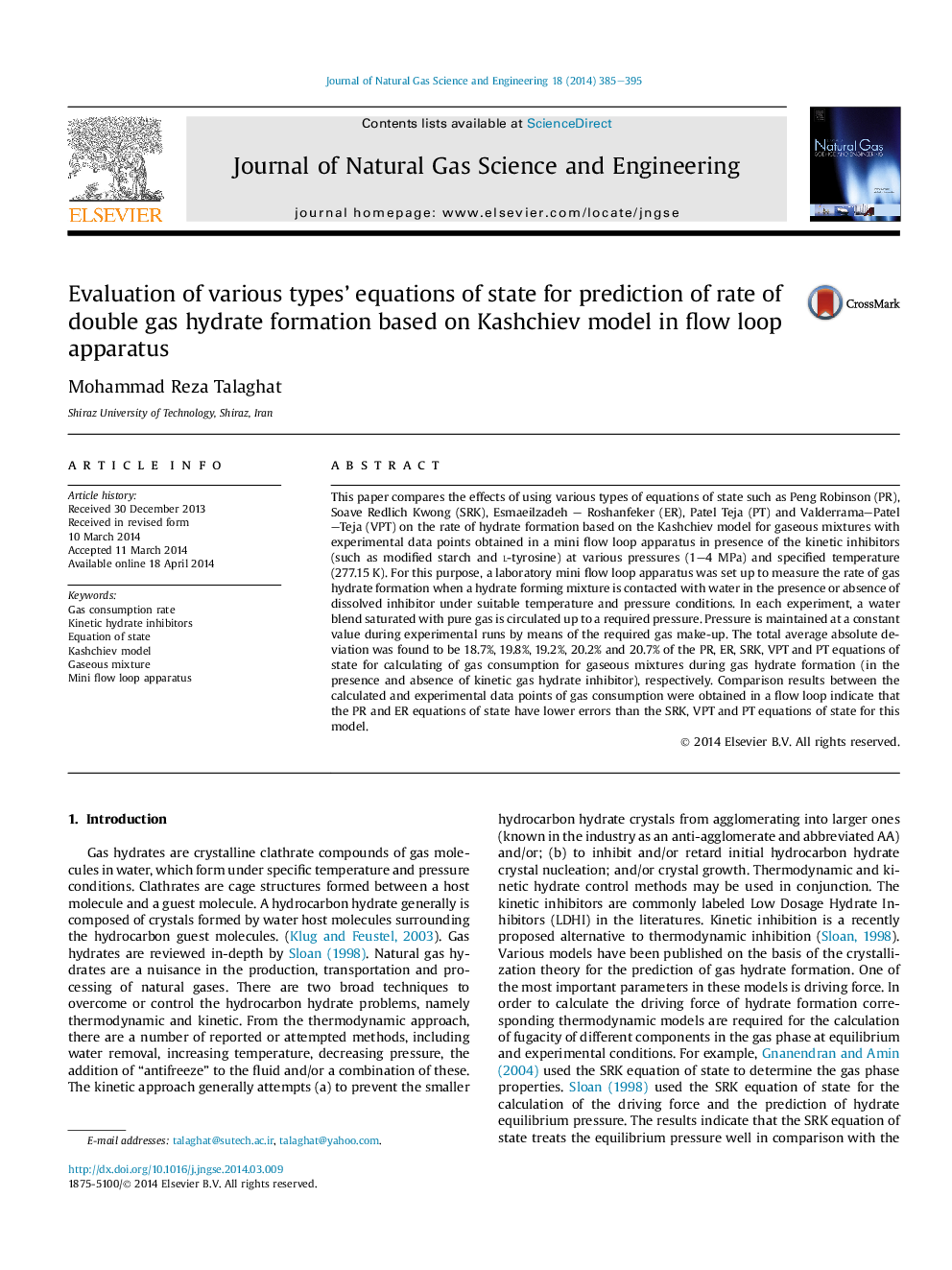| Article ID | Journal | Published Year | Pages | File Type |
|---|---|---|---|---|
| 1757951 | Journal of Natural Gas Science and Engineering | 2014 | 11 Pages |
•Developed an equation for prediction of gas consumption based on the Kashchiev model.•Using a laboratory flow mini-loop apparatus for experiments.•Modified starch and l-tyrosine are new kinetic hydrate inhibitors.•Evaluation of various types' EOS for prediction of rate of double gas hydrate formation.•Measuring the induction time in presence of KHIs in a flow loop apparatus.
This paper compares the effects of using various types of equations of state such as Peng Robinson (PR), Soave Redlich Kwong (SRK), Esmaeilzadeh – Roshanfeker (ER), Patel Teja (PT) and Valderrama–Patel–Teja (VPT) on the rate of hydrate formation based on the Kashchiev model for gaseous mixtures with experimental data points obtained in a mini flow loop apparatus in presence of the kinetic inhibitors (such as modified starch and l-tyrosine) at various pressures (1–4 MPa) and specified temperature (277.15 K). For this purpose, a laboratory mini flow loop apparatus was set up to measure the rate of gas hydrate formation when a hydrate forming mixture is contacted with water in the presence or absence of dissolved inhibitor under suitable temperature and pressure conditions. In each experiment, a water blend saturated with pure gas is circulated up to a required pressure. Pressure is maintained at a constant value during experimental runs by means of the required gas make-up. The total average absolute deviation was found to be 18.7%, 19.8%, 19.2%, 20.2% and 20.7% of the PR, ER, SRK, VPT and PT equations of state for calculating of gas consumption for gaseous mixtures during gas hydrate formation (in the presence and absence of kinetic gas hydrate inhibitor), respectively. Comparison results between the calculated and experimental data points of gas consumption were obtained in a flow loop indicate that the PR and ER equations of state have lower errors than the SRK, VPT and PT equations of state for this model.
